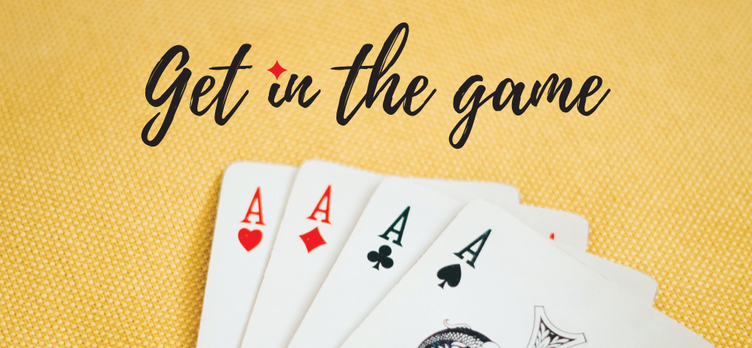I have a confession to make — every time I go to one of our local casinos, I’m too intimidated to play a table game. I have a lot of fun trying out new slot machines (my most recent favorite is Monopoly), but how can I truly channel my inner Cincinnati Kid if I don’t ever ante up at the table?
To help me gain the confidence I need to saddle up to the table and be dealt in, I contacted a couple of professionals in the gaming business.
Black Oak Casino Table Games Manager Matt Maddox said many players first get into games by playing online for free.
“Playing an app first gives you a basic understanding of the game and builds confidence,” said Maddox.
Finding the right table is also key to beginners having a good experience.
“Find a friendly dealer. They understand the game and have a vested interest in you succeeding,” he said.
One of the more popular games at Black Oak Casino right now is Spanish 21.
“It resonates well with everyone,” he said about the Blackjack variant.
Spanish 21 is played with six to eight decks of cards of 48 cards each. Unlike other games it excludes all suited 10 cards. However, all the Jacks, Queens and Kings remain in the shoe. Hence, overall there are 25 percent of the 10-count cards missing.
Maddox said entering a tournament is a great way to learn how to play. Black Oak Casino has a new “Young at Heart” Blackjack Tournament every Wednesday from 1 p.m. to 4 p.m. for those 50 years old and better. Sign-ups begin at 11 a.m. with a $10 buy-in and $1,000 in cash prizes.
Jackson Rancheria Poker Room Manager Carl Jackson also said that tournaments are the best way for a beginner to get into the groove of a new table game.
“It’s only intimidating because you know you haven’t played. Others don’t know that,” said Jackson. “It’s an opportunity to not feel rushed.”
According to Jackson, the most popular game right now at Jackson Rancheria Poker Room is Texas Hold ‘em. In this variation of poker, each player is dealt two cards face down. Then the dealer puts out five “community” cards. The first round of three cards is “the flop.” Then the next single card (the turn) is shown. The final card, or “the river,” is revealed and then each player tries to make the best hand out of the two cards they were individually dealt, along with any combination of the five community cards.
There is a Texas Hold ‘em tournament offered at 10:30 a.m. every Wednesday with a $30 buy-in and $10 add-on for 7,000 chips.
Jackson said beginning players don’t need to spend hours reading up on how to play poker, they just need to know the value of the cards.
“With the slightest bit of knowledge, the slightest bit of confidence, you can bluff your way all day,” he said.
Jackson offered a few other tips, as well:
— When in doubt, check.
— Don’t talk about hands until they’re over.
— Don’t tell people how to play.
— And in the words of Kenny Rogers, “You’ve got to know when to hold ‘em; know when to fold ‘em.”
“Don’t be afraid to cut your losses,” said Jackson.
For more information about tournament times and dates, visit:
POKER TERMS
ACTION
One’s turn to act during a hand.
ANTE
A small bet all players are required to make before a hand is dealt.
BIG BLIND
The amount of chips the second player to the left of the dealer has to bet. The amount depends on the stakes. Like an ante, it is a posted amount that makes the pot worth playing for before the action begins. It is equivalent to one complete first round bet. It’s a called a blind because it amounts to placing a bet without seeing the cards first.
BUTTON
The position of the dealer. In live poker, it’s usually denoted by placing a plastic disk in front of the dealer. It rotates clockwise each time the dealer shuffles for a new hand. The button is in an advantageous position, for he acts last in a betting round.
BUY-IN
The cost to enter a tournament, or the minimum amount needed to sit down in a cash game at a specific table. Usually 20 times the big blind. So, for example, if you’re at a $5/$10 table, you’ll need $200 to take a seat.
CALL
To contribute the minimum amount of money to the pot necessary to continue playing a hand.
CHECK
To pass on betting. If there’s no action (bet) to you, there’s nothing to call. If you don’t want to bet, you can just “check.” If there’s subsequent action from your fellow players in the betting round, then the action will come back to you to either call, fold or raise.
FOLD
To give up by placing your cards face down on the table, losing whatever you have bet so far. You only fold when you think your hand is too weak to compete against the other players.
KICKER
If you have the same hand as another player at showdown, the one with the highest kicker wins the pot. If the board is 7-7-5-5-2, and you have ace-king and your opponent has king-queen, you win because your ace beats his king. Your ace is the “kicker.” The highest card completing a five-card hand is the only determination between winning and losing in this example.
RAISE
To wager more than the minimum required to call, forcing other players to put in more money as well.
TELL
An interpretation of a physical action or a betting pattern that seemingly reveals how strong or weak a player’s hand is. The best players do not provide many tells themselves and have an ability to detect tells of their opponents in order to determine how to play a hand.





